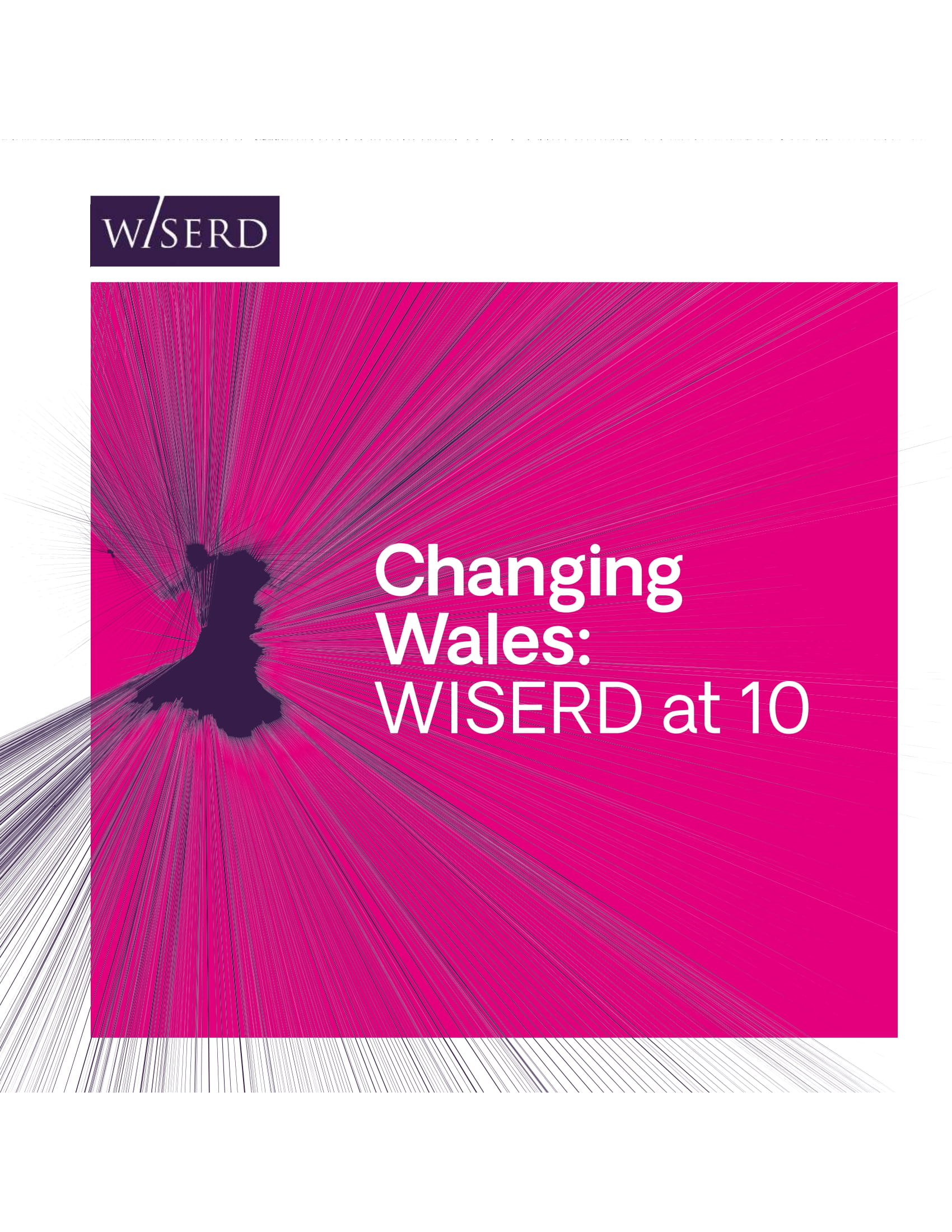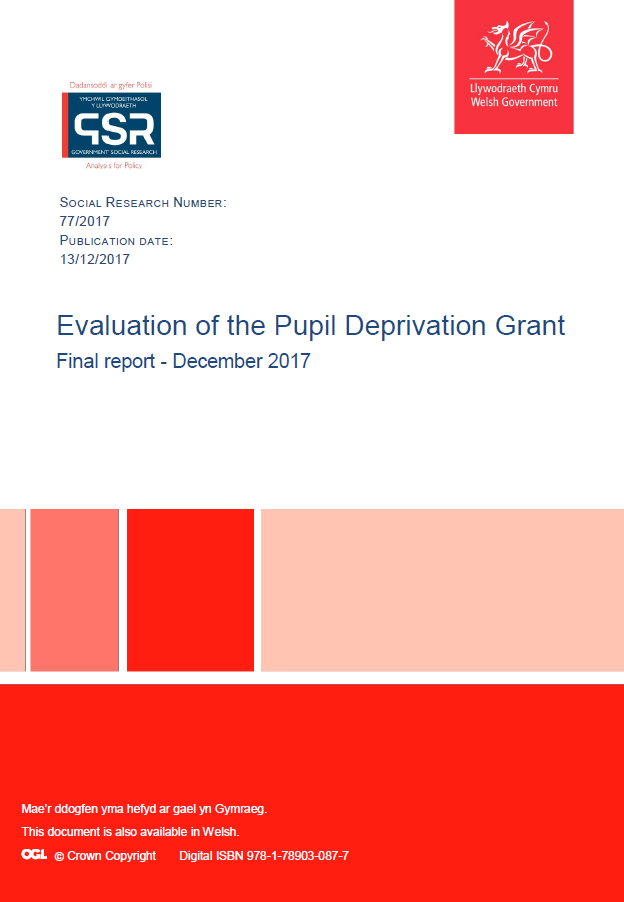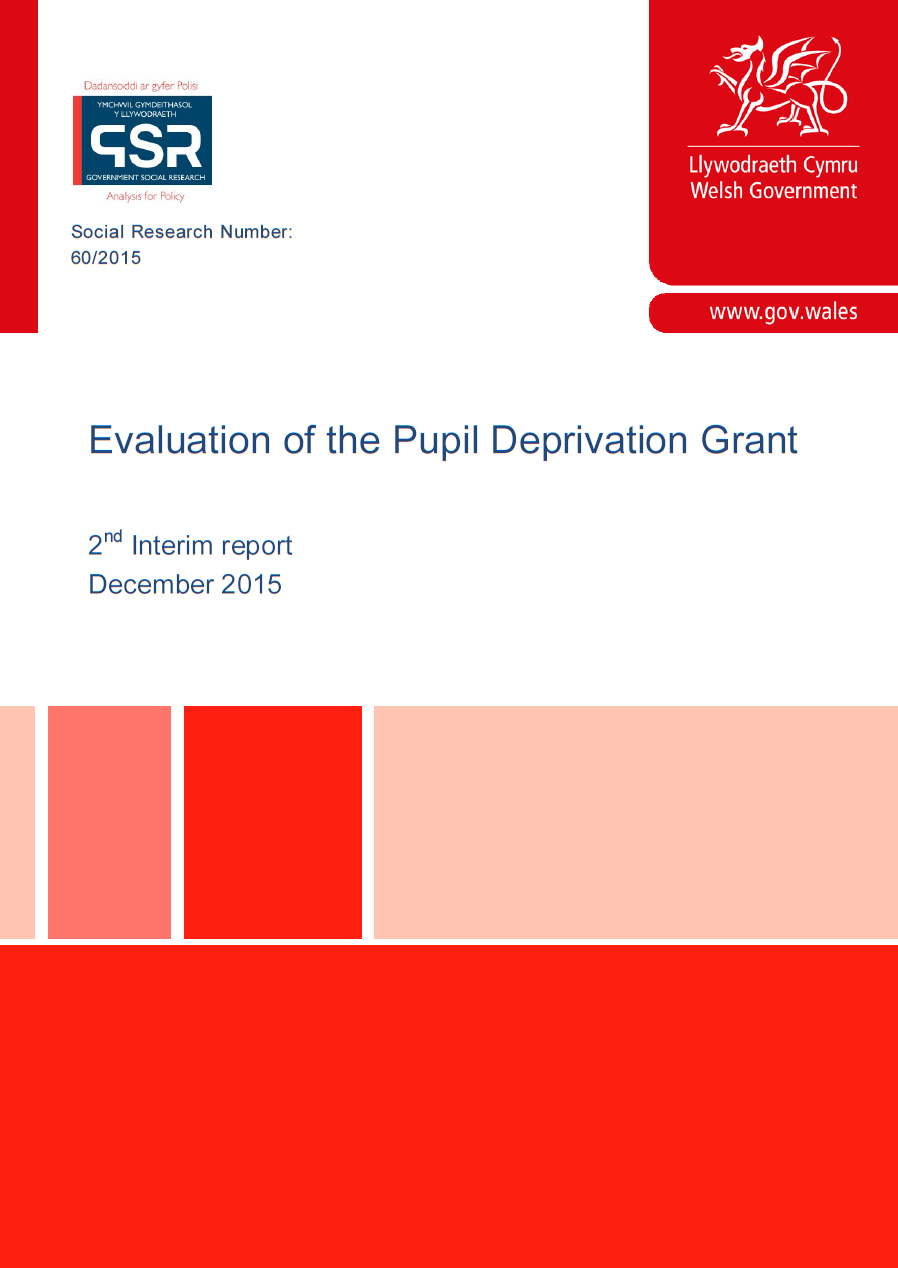Overview
The Pupil Deprivation Grant was introduced in 2012-13 and provides schools with additional resource to raise levels of achievement of a particular group of economically disadvantaged learners. This two-year evaluation looked at how schools have used this new grant and what impact this additional resource has had on these children and young people. In particular we were interested to see what impact schools have managed to achieve on increasing school attendance and raising educational achievement amongst those targeted by the initiative. The evaluation had wide-ranging benefits. At one level it helped the Welsh Government decide whether to continue with the initiative or how it should be continued. But it also aimed to identify which particular activities and interventions that schools have introduced as a direct result of the grant appear to have had the greatest impact. The evaluation produced an interim evaluation report during 2014 and a final evaluation report in 2015.
The link between socio-economic deprivation and educational attainment is well established, both in Wales and elsewhere (Egan, 2013). Alleviating the impact of deprivation on educational outcomes, and in closing the associated achievement gap between advantaged and disadvantaged learners, has been a priority in Wales since devolution (The Learning Country, 2001). In 2012 a new national plan was introduced in Wales to raise standards in 3 to 16 education; Improving Schools (2012a) identified three priorities for improving educational outcomes for learners in Wales: to improve literacy; to improve numeracy; and to reduce the impact of deprivation on educational outcomes. The overall success of this plan was measured against the proportion of 15-year-olds who leave school with Level 2 including English/Welsh and mathematics.
The policy response to these priorities has been extensive, and includes numerous policies and initiatives. Central to many of these initiatives has been the provision of funding for targeted activities designed to raise educational standards, such as the School Effectiveness Grant and additional funding for secondary schools in the two lowest Bands of performance. The introduction of the Pupil Deprivation Grant (PDG) in 2012-13 is designed to further support these aims, and to direct schools and local authorities to place greater emphasis on mitigating the effects of poverty and socio-economic disadvantage on educational attainment. The PDG has similar aims to the Pupil Premium in England.
WISERD, in partnership with Ipsos-MORI, has been awarded the contract to undertake an evaluation of the PDG. The evaluation had six main aims:
- Assess the extent to which the overall aims and objectives of PDG have been met;
- Determine the impact of the PDG on improving the educational outcomes of pupils receiving support through PDG funded provision. This entailed assessing its contribution to improvements in standards of education and any long-term capacity building in improving the educational attainment of socio-economically disadvantaged pupils;
- Identify how effective LAs, regional consortia and clusters have been in ensuring that the grant is used effectively;
- Identify the key strengths of PDG and any constraints/issues that may have impeded its effectiveness;
- Assess the value for money of the grant;
- Provide recommendations as to how the Welsh Government, local authorities and schools can best build upon the PDG in meeting the Minister for Education and Skills’ priority to reduce the impact of deprivation on academic attainment.








